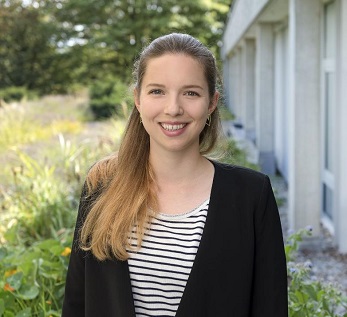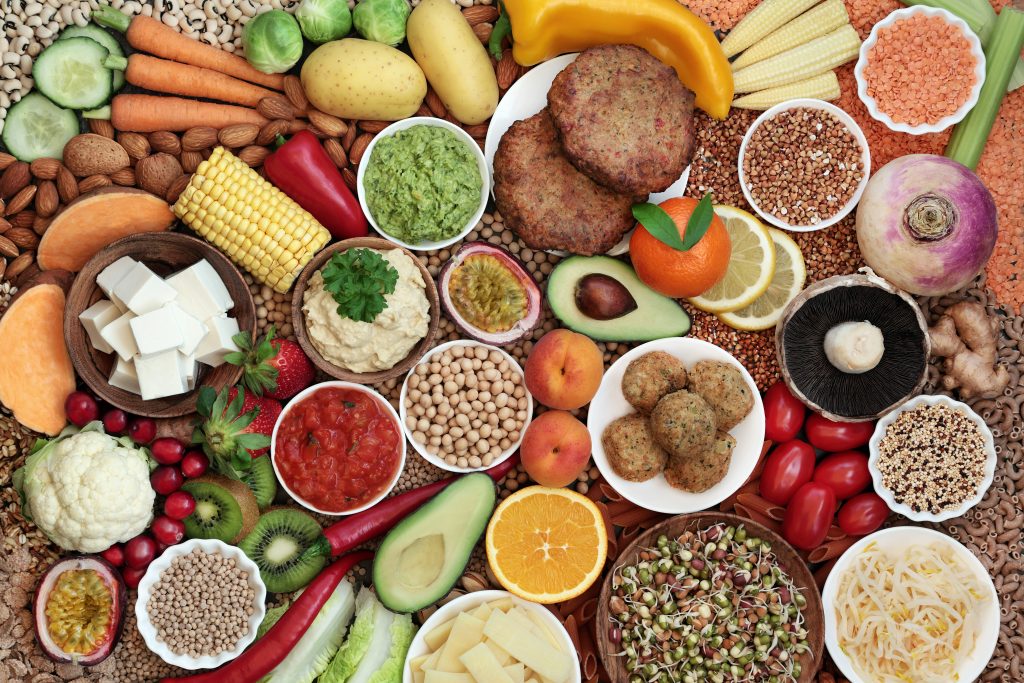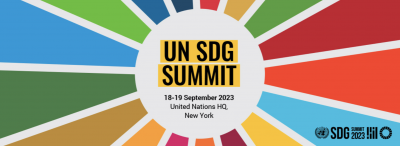A researcher and speaker at GDI Gottlieb Duttweiler Institute, Christine Schäfer’s work frequently addresses the damage human over-consumption does to the environment around us. Here she tells Future how the ecosystems in our own bodies are now also under threat
Christine Schäfer, researcher and speaker at GDI Gottlieb Duttweiler Institute, is passionate about several subjects that regularly make news headlines and capture the public consciousness in these challenging times. Sustainability, the environment, our changing diets, and key trends in how we are consuming global resources dominate her research.
Much of her latest work links all of these subjects of the human condition and the world around us, together – with the common denominator being the global food system and the impact it has on both the ecosystems around us, but also within our own bodies.
Affecting change
Schäfer studied in Bern, Switzerland, and Valencia, Spain. During her master’s degree, she focused on marketing and consumer behavior, a topic she has continued to be fascinated with. Following a trainee program in Johnson & Johnson’s fast moving consumer goods (FMCG) division, where she decided, “this is a lovely company, but it’s just too big for me and I cannot affect anything,” she went looking for new opportunities. She found GDI Gottlieb Duttweiler Institute, an independent think-tank and the oldest organization of its kind in Switzerland.
Six years later, her research focuses on food systems and consumer decisions, “how our needs are changing and how that affects the whole food business.” A frequent speaker at industry events, she also organizes workshops, writes reports, and interviews numerous industry experts.
In recent years, Schäfer has conducted significant research on the subject of alternative proteins and reducing our consumption of animal protein. “There is lots of money going that way. And laws are changing to make this protein transformation possible,” she says.
Why we are still what we eat
So, why does she find that topic, and countless others in the food sector, so compelling?
“Firstly, I just love food and discovering new flavors. Secondly, food impacts us all. We all have an opinion on it. And we can all make a difference [to the environment] by changing our eating habits. Thirdly, food also affects our health or wellbeing. ‘You are what you eat’ is a very old saying, but it hasn’t lost any of its validity. What we eat can also influence how we feel both physically and mentally. It’s fascinating,” she says.
The global food system has a direct impact on climate change too. Food production contributes around 37% of global greenhouse gas (GHG) emissions. “GDI always tries to look at the global food system as a whole because it’s so interconnected and entangled,” she says.
Schäfer, while utterly passionate about sustainability and committed to improving the global food system, is fully cognisant as to how hard it is for people to change habits – or fully realize the consequences of their consumption. “The world is just too complex to fully understand the consequences of all our actions and all the decisions – in their thousands – that we make in our day-to-day life. It’s almost impossible to live truly sustainably, while still having a job, hobbies or maintaining some sort of social life. It just takes up so much time to be informed about everything and always make the more sustainable choice. It’s something we are all struggling with – feeling overwhelmed by how many choices we have to make every day, trying to be sustainable,” she says.
“It’s something we are all struggling with – feeling overwhelmed by how many choices we have to make every day, trying to be sustainable”
Christine Schäfer
Our mutating microbiomes
Despite what choices those of us in developed nations might make that can impact our diet or even the planet, changes are already taking place within our bodies that we cannot fully control. Schäfer mentions a scientific study of indigenous people from the Brazilian rainforest, who have not been exposed to so-called Western diets, healthcare, hygiene ‘standards’, or industrial pollution. Stool samples collected from the tribespeople demonstrated their gut bacteria was markedly different and more diverse than that of the majority of the global population. The samples contained double the number of different microorganisms as those of Western city dwellers.
The human microbiome is the collection of all microbes, such as bacteria, fungi and viruses, which naturally live on and inside our bodies. “Our microbiomes are changing,” says Schäfer. “And they’re as fundamentally under threat as the wider environmental ecosystems around us. We live in a very close partnership with our microbes. So, what we are doing to our outside world with pollution, loss of biodiversity and climate change, we’re also doing to our insides via the food we grow in these outside ecosystems. We consume that and it then becomes a part of our ecosystem – and that’s affecting our health.”
Many so-called lifestyle diseases, such as diabetes, allergies and food intolerances are closely linked to a microbiome that lacks the ‘good’ bacteria we need, says Schäfer. “Our microbes play such an important role in our bodies. They not only help with our digestion or immune response, they also communicate with our brain and the nervous system via their metabolic products. Researchers even speak of us possessing an ‘industrial microbiome’ because it lacks a lot of the good bacteria we need for our health. After industrialization, the mass production of food and greater convenience, our diets started changing. We eat more meat, food is increasingly processed – and this has had a big influence on our microbiomes.”
So, how do we stop or even reverse this diminishing biodiversity within our own bodies? “Science and research are only at the beginning of this subject. We don’t completely understand it yet because it’s so complex,” says Schäfer. “Microbiomes are as individual as your fingerprint, so it’s really hard to say, ‘You should eat this’ or ‘That’s unhealthy for you’. In a few years, though, science should be able to fully analyze our microbiomes and recommend what we should eat to be healthier.”
Sleep well, reduce stress, excercise regularly
But there are some do’s and don’ts for a healthy microbiome that seem to be universal, says Schäfer: eat more fiber – although it cannot be fully digested by humans, it is an excellent source of nutrition for numerous bacteria; eat more fermented foods because they contain a lot of the “good” bacteria; and don’t consume so much sugar, red meat, alcohol or processed foods.
We should, says Schäfer, also spend more time outside in nature or petting animals to get in touch with different types of bacteria, sleep well and sleep more, reduce stress, exercise regularly and only take antibiotics if they’re really necessary because they also kill a lot of the good bacteria and not only the ones that make us sick. “It’s not only about food but also about your lifestyle choices. A microbiome that’s out of balance can affect our health and make us sick. It can also affect our mental health because those bacteria that live in our gut produce neurotransmitters. They are constantly in contact with our brains. Our gut also affects the way we feel and our mental wellbeing.”
Schäfer tries to remain positive for the future of the ecosystems within us. “I always try to be optimistic about the future, because otherwise, my job would be really hard! On one hand, people are changing their eating habits, because they are starting to realize how the food we eat is affecting us and also the effect that we have on nature, on the climate and on ecosystems. But on the other hand, we still very often eat too much of the wrong foods because they’re available, convenient, and cheap, and not enough of the right foods, because they’re more expensive and take up more time to prepare. I think that having access to affordable, healthy foods should be a human right, but that’s just not the reality for everyone. So yes, sometimes staying positive is a bit hard, but I try to.”
Ultimately Schäfer finds it interesting on a philosophical level how much control microscopic lifeforms can have on their dominant species. “It starts to mess with our conception of ourselves as humans. In the pyramid of life on Earth, humans see themselves on top because we have the biggest brains and therefore think we are the most important beings on our planet. But then, when you think about how we are controlled by these microorganisms, and how big their effect is on how we behave, it makes you reconsider how we should see ourselves. Not as the kings of the world, rather just one part in a larger ecosystem.”
Further details: For more information, please visit https://gdi.ch/en/food-trends-nutrition-trends

Christine Schäfer, researcher and speaker at GDI Gottlieb Duttweiler Institute






